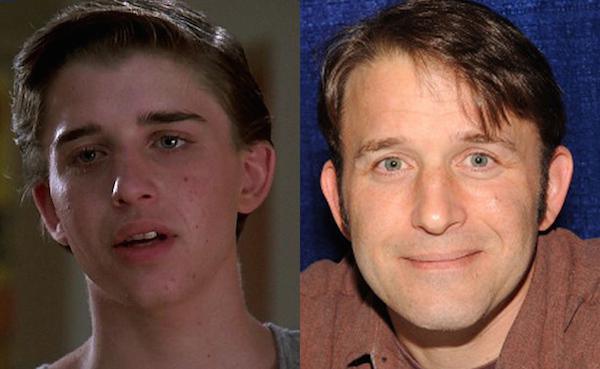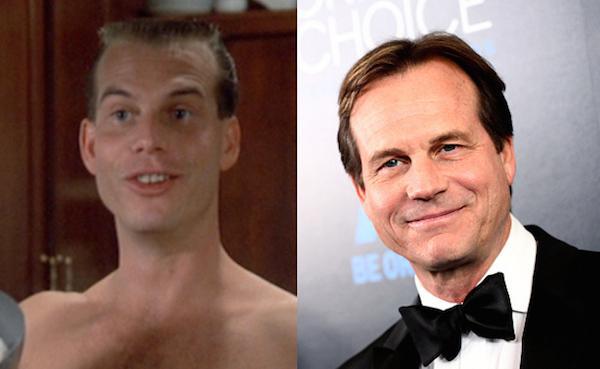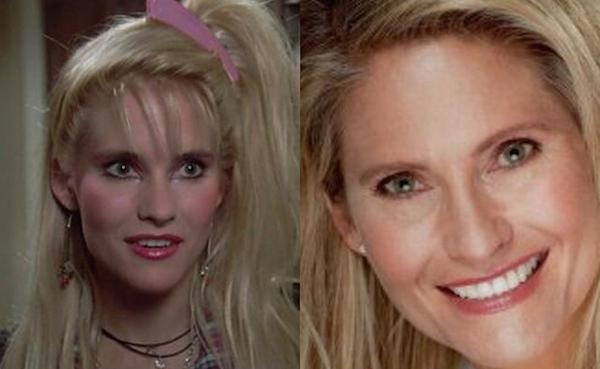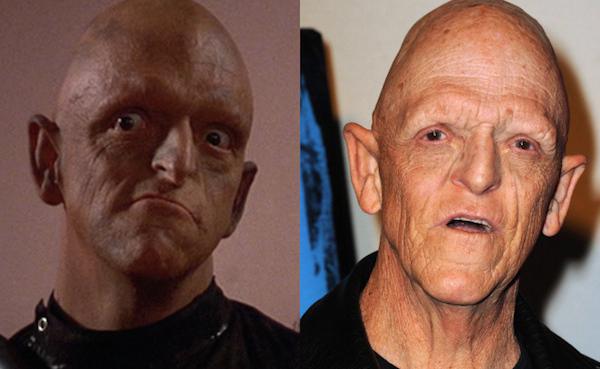SKECHERS
Can goofy shoes magically endow you with a rockin' Armenian ass like Kim Kardashian's? No, but Skechers really wanted you to believe that they could, and their line of Shape-Up clown shoes was supposedly designed to exercise unusual muscle groups just by walking around in a considerably weirder manner. Enough people fell for this Ministry of Silly Walkercise BS that the Federal Trade Commission had to step in and ruin Skechers' fun to the tune of a $40 million settlement.
AIRBORNE
Airborne's big claim to fame was that it was developed by a schoolteacher, but as we've seen before schoolteachers aren't necessarily infallible. That's especially true when schoolteachers claim they've cured the common cold with a jumble of random ingredients that work out to be roughly as effective as a cheap Vitamin C pill-or even a placebo. Nutritionists with the Center for Science in the Public Interest eventually hit Airborne with a class action lawsuit demanding they refund some $23 million to anyone who could prove they'd bought the overpriced supplement. Airborne never officially admitted their lie, but they did quietly redesign their packages to de-emphasize the scary cold germs and promote a vague claim about "helping the immune system."
EXERCISE IN A BOTTLE
When Enforma wanted to promote its diet supplements Fat Trapper and Exercise in a Bottle, they turned to renowned dietician, nutritionist, and bioethicist Steve Garvey... wait, no, it turns out Steve Garvey was first baseman for the Padres back in the eighties. He still seemed like a trustworthy enough guy to sell millions of dollars worth of the magic pills, neither of which turned out to either trap fat or contain exercise in a bottle. Enforma itself got nailed to the wall pretty quickly, but when the FTC tried to sue Garvey, a federal appeals court ruled celebrities weren't responsible for the misleading statements they were fed during ads. The FTC soon closed that loophole, which is why Shaq can't legally tell you that Fruity Pebbles is superior to Cocoa Pebbles.
RALPH LAUREN
Supposedly everybody knows that women in fashion ads are routinely airbrushed, retouched, and otherwise distorted to sell product, but in most cases it's done with a light enough hand that people forget they're essentially buying clothes modeled by a cartoon. Ralph Lauren's 2009 ad campaign accidentally killed the illusion by taking the photoshopping past "mild editing" and beyond "unrealistic body standards" all the way into "oh dear God, I don't know what that thing is but it's wearing some lady's skin." After unsuccessfully trying to sue the many bloggers that pointed out that most women's heads aren't larger than their waists, Ralph Lauren eventually apologized and promised to stop using the Grey Alien filter in the future.
ENZYTE
Speaking of horrifying cartoon people, remember the Enzyte commercials featuring Smilin' Bob and his creepy grin? If you're wondering why you haven't seen much of him lately, it's not because of some sort of federal ban on advertisements that cause nightmares, but because of all those official-sounding claims about 98.3% success rates, enlargements of "up to 41%," and in one case a puzzling "27% increase in roundness." The men who were disappointed with their insufficiently round dicks and attempted to take up the "double your money back" claim were baffled by deliberately deceptive materials trying to get them to waive their right to a refund. Eventually the FTC stepped in and found that not only was the company making false and deceptive claims, but that they were overcharging credit cards and committing mail fraud. Enzyte's "inventors" went away for 25 years, although the product is still available for gullible men with small, square penises.
IPHONE 3G
When do the words "twice as fast, half the price" actually mean "marginally faster and slightly cheaper?" When you're writing ad copy for Apple's iPhone 3G, of course, which due to sneaky price plans and a poorly designed third-party chip, was neither twice as fast nor half as expensive as the original. After two iPhone 3G commercials were banned in the UK for making false claims, disgruntled American consumers launched a class-action false-advertising suit against Apple. Apple's official response: "the alleged deceptive statements were such that no reasonable person in Plaintiff's position could have reasonably relied on or misunderstood Apple's statements as claims of fact." In short: "our claims are basically so unbelievable you can't even call them lies, and if you fell for them it's your own dumbass fault." Because Apple has more money than God's rich uncle, the suit is still trudging through the courts years later along with several other false-advertising claims.
HOOVER'S AIRLINE TICKET PROMO
Ever known someone who, when caught in an obvious lie, doubled down with an even crazier lie instead of just fessing up? Then maybe you know someone who worked for Hoover UK's infamous 1992 ad campaign, which offered two free round-trip flights to anywhere in Europe to anybody who spent £100 on any Hoover product. Hoover soon realized that they wouldn't be able to meet the demand, but instead of shutting the promotion down and issuing refunds, they expanded the offer to include flights to anywhere in the USA.
Customers attempting to cash in on the deal soon found themselves filling out and sending in an apparently endless series of ownership forms. The whole thing finally fell apart in 1994, after an angry consumer group actually bought enough shares in Hoover UK's parent company Maytag to meet with the CEO at a shareholders meeting (which ironically they had to fly to America to get to). Hoover UK sacked most of its executives, lost £50 million in payouts, and ended up being sold off to more trustworthy (or at least less dumb) investors.
BAYER ONE-A-DAY
Prostate cancer is scary-really all forms of cancer are scary, but not all of them require a periodic hand up your butt-and when Bayer started making the claim that "emerging research suggested" the selenium in their One-A-Day For Men multivitamin could reduce the risk of prostate cancer, they reaped the benefits in the form of a 16% boost in sales. The only problem was that "emerging research" had long since emerged, and the only thing it "suggested" was that selenium could actually make prostate cancer worse in men who'd already contracted the disease. Eventually scientists convinced the FTC to take the pharmaceutical giant to court, resulting in a $3.3 million dollar fine and a legal agreement to never again claim vitamins can cure cancer. Of course, since the increased sales for One-A-Day made them $36 million in the first quarter of 2010 alone, Bayer doesn't have much incentive to abide by that agreement.
DANNON YOGURT
Yogurt manufacturer Dannon has had to settle out of court so many times over its Activia and DanActive probiotic goops that should a Dannon ad tell you that the sky was blue, you might be forgiven for sticking your head out of a window to check. They lost a case over Activia's "scientifically proven" health benefits, they lost another over DanActive's claims to boost immunity, and their heavily-promoted secret probiotic ingredient "bifidus regularis" was in fact a fairly common bacterium that scientists aren't really sure helps "regularity" at all.
Recently, though, Dannon scored a rare victory alongside General Mills and Cabot Creamery: the three companies managed to defeat a class-action lawsuit that actually questioned whether their products could even be legally called yogurt at all. Activia heavily relies on milk protein concentrate (MPC) to keep costs down, but diehard yogurt fundamentalists argue that MPC has no place in "real" yogurt and sought to force Dannon and others to refer to their products as something other than yogurt (we suggest Yuppie Scum). Having the government officially verify that their yogurt is, in fact, yogurt was quite the coup for embattled Dannon, who have never officially admitted that any of their health claims were bogus.
POM WONDERFUL
It takes some real cojones to get yelled at by the FTC for promoting bogus research claims in your product, then to turn around and use quotes from the FTC's ruling out of context to claim your product will make you immortal. If nothing else, it at least takes a lot of money, money which POM Wonderful's owners have and are willing to spend on full-page ads in the New York Times and a website all about how pomegranate juice is somehow way better than any other kind of fruit juice. POM Wonderful is even going on the offense against other companies, lately winning a false advertising suit against Coca Cola for producing a "pomegranate-blueberry" juice that was actually 99.4% apple and grape juice. That's an important distinction if you're like POM Wonderful: fearlessly committed to truth and also in control of the majority of the American pomegranate crop.






















 I h
I h












































 Before you go out proudly singing "I Just Had Sex," perhaps you should stop to consider that the person you just shacked up with may have in fact been your cousin.
Before you go out proudly singing "I Just Had Sex," perhaps you should stop to consider that the person you just shacked up with may have in fact been your cousin.